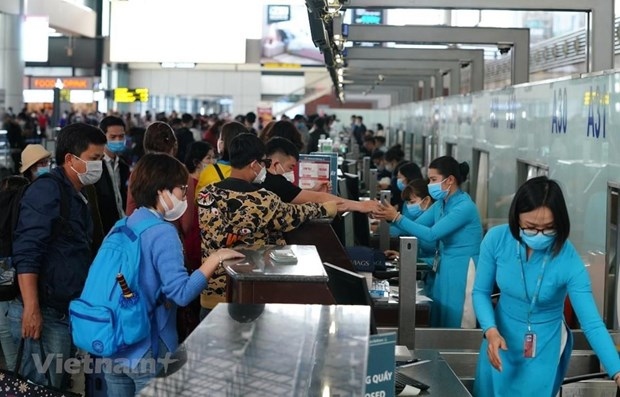COVID-19: Dark clouds and a silver lining for Vietnam’s tourism sector
It’s fair to say that 2020 was a challenging year for Vietnam’s tourism sector, but it wasn’t an unmitigated disaster. Analysts have said that COVID-19 created a turning point for both local and international tourism, requiring travel companies study and craft a new future for their business.
Travel companies hit hard by pandemic
At a recent travel forum in Hai Phong city, Deputy Minister of Culture, Sports and Tourism Nguyen Van Hung said the COVID-19 pandemic saw thousands of businesses dissolved last year while tourism revenue fell 60% year-on-year to VND312.2 trillion (US$13.5 billion).
The country is now home to 3,339 travel companies, including 2,519 international ones.
The tourism sector came to a standstill as borders were closed to foreign visitors, Hung said, adding that it will be hard for travel companies to maintain business if they cannot find a way to renew their operations.
He suggested local companies accept the challenges and find opportunities in the new era.
Hung recalled a case of a large outbound firm in Hanoi that was unable to make a timely response to the pandemic and had to close, while highlighting the sound policies of several travel agents that helped them overcome the difficulties.
According to the General Director of TST Tourist, Lai Minh Duy, his company had to streamline its operational apparatus, build a new development strategy, and introduce new tourism products to attract local visitors.
TST’s standout packages of city tours, yachting, visits to Cu Chi Tunnels, and boating on canals impressed visitors from various regions of the country, he added.
Meanwhile, Director of Hanoitourist Phung Quang Thang said it is necessary for travel companies to build new tourism products to attract visitors in the context of fading travel demand.
Working together to craft the future
Travel companies decided it was vital for them to form a league to recover from the outbreak.
Standing Vice Chairman of the Vietnam Tourism Association Vu The Binh affirmed that the establishment of an alliance is being seen in many sectors, including tourism, with this alliance creating a constant value chain to ensure the greatest efficiency in the tourism sector.
He also warned, however, that travel companies should look carefully to identify the best form of alliance, to prevent any waste of time and money.
“Travel company owners know how to connect the services chain in the most effective manner, since they themselves sell tourism products and services,” he added.
Tourism today should be smarter in business and the development of products and services, so as to reap the largest possible benefits for businesses and visitors alike, Binh stressed.
Geared to take off
Since no one knows as yet when the pandemic will end, it is necessary for Vietnamese authorities to compile rational policies to reshape the tourism sector.
Tourism experts believe that Vietnam should consider compulsory healthcare insurance for both domestic and foreign visitors when tourism activities are resumed. The move aims to ensure the rights and safety of tourists, tourism companies, and local authorities in case visitors have to cancel trips or receive treatment related to COVID-19.
COVID-19 tourist protection and support insurance schemes have proven efficient in several countries, as they cover treatment, healthcare, medical examinations, evacuation, and repatriation.
Several insurance companies introduced COVID-19 insurance packages last March, but they were asked to stop in the Prime Minister’s Directive No 16/CT-TTg on urgent measures to prevent and fight the disease.
Deputy Director of Saigontourist Vo Anh Tai said that along with market forecasts, tourism promotions, and visa exemptions for 22 countries (which were suspended last March), Vietnam should also set up regional and international coordination mechanisms across tourism, foreign affairs, and transport to have flexible policies to support tourism recovery in the “new normal”.
“France allows traders in the tourism sector to give vouchers to customers when bookings are cancelled,” he said. “Customers can ask for a refund after 18 months with the unused vouchers. This helps ease financial disputes between businesses and customers, while maintaining tourism demand between enterprises in the tourism service supply chain.”

